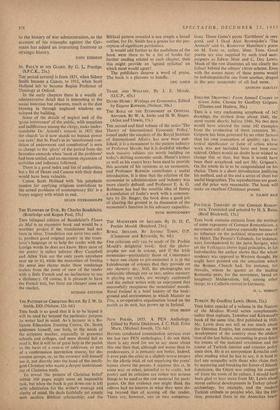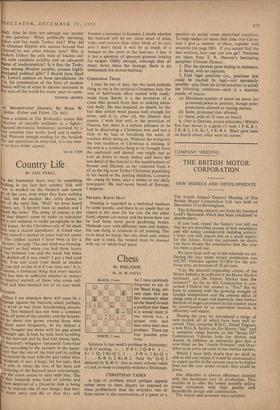TURKEY. By Geoffrey Lewis. (Bean, 21s.) THIS latest remake of
a volume in the Nations of the Modern World series complements. rather than replaces, Townbee and Kirkwood's book of the same title, first published in 1926 Mr. Lewis does not tell us too much about the Ottoman Empire, but concentrates on the development of the country since the abdica- \ tion of the last Sultan, recounting in great detail the events of the national revolution and the course of Turkish interior and exterior policy since then. He is an unrepentant Kemalist and, after reading what he has to say, it is hard to feel any sympathy with those wins claim that, by mastering and breaking the forces of Islamic fanaticism, the Ghazi was cutting his countsy off from the roots of its culture. I should have been glad to hear more from Mr. Lewis about recent cultural developments in Turkey (about archeology, for example, and the modern Turkish attitude to peoples who, like the Hit' tites, preceded them in the Anatolian heart- and). Also he does not attempt any answer ° the question : What, politically speaking, sakes and has made Turkey tick? Why did he Ottoman Empire win success beyond that ehieved by any other Islamic state? Why is Modern Turkey the only state of Islamic cul- ere with complete stability and an advanced legree of modernisation? Is it that the Turks, Hone among Moslem peoples, possess highly leveloped political gifts? I Should have liked r. Lewis's opinion on these speculations. As is, his presentation of the facts of modern urkey will be of value to anyone interested in hat area of the world for many years to come.



































 Previous page
Previous page